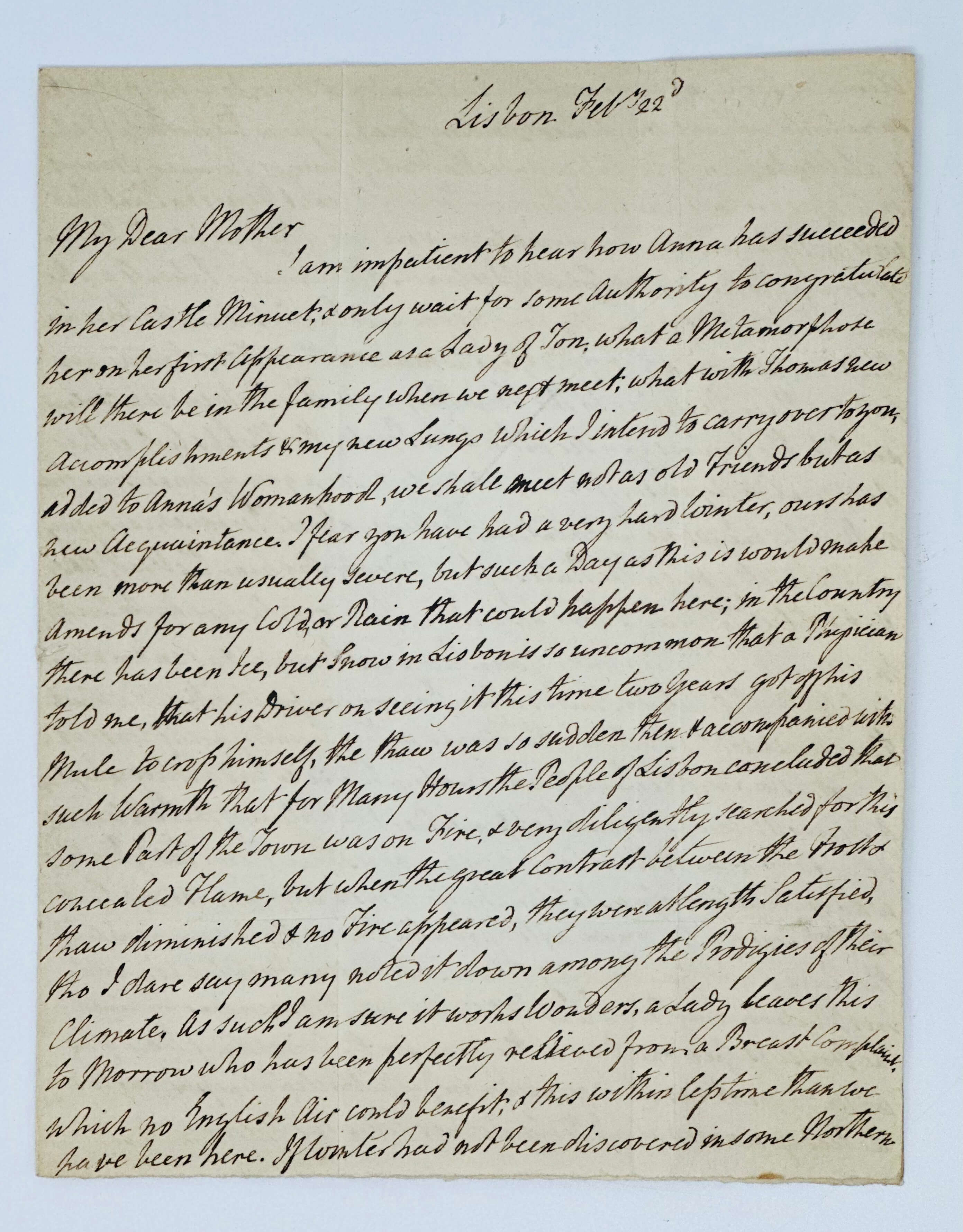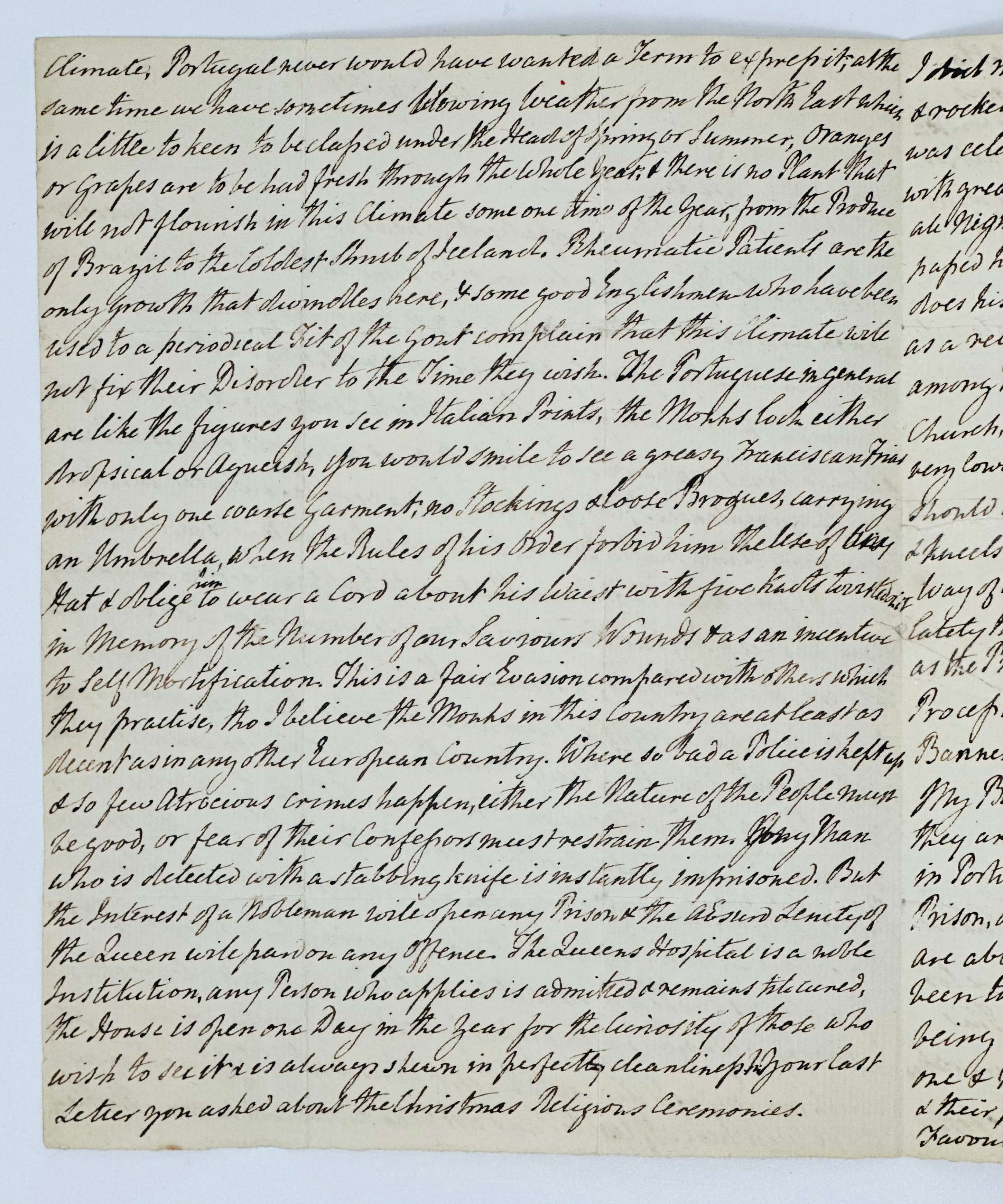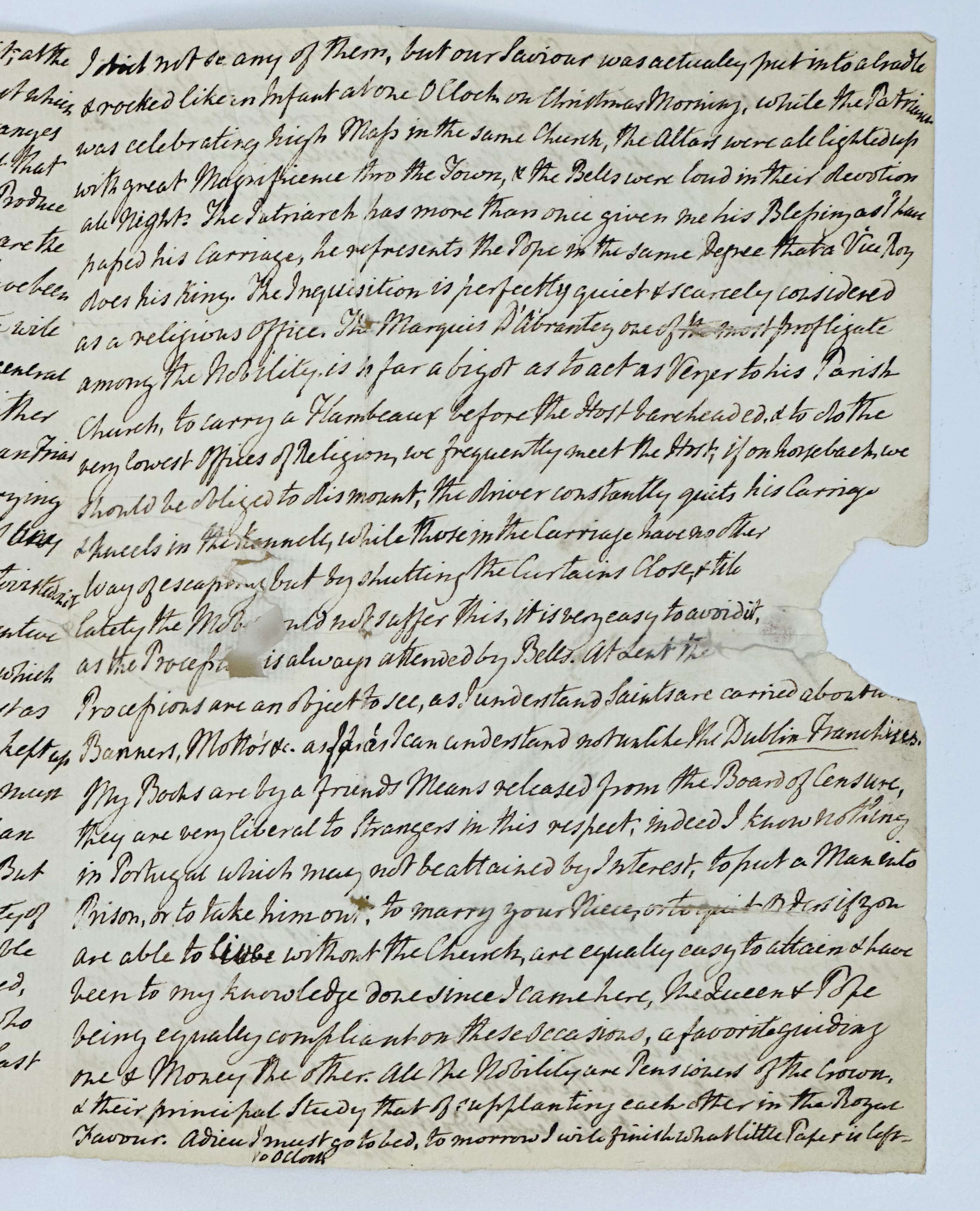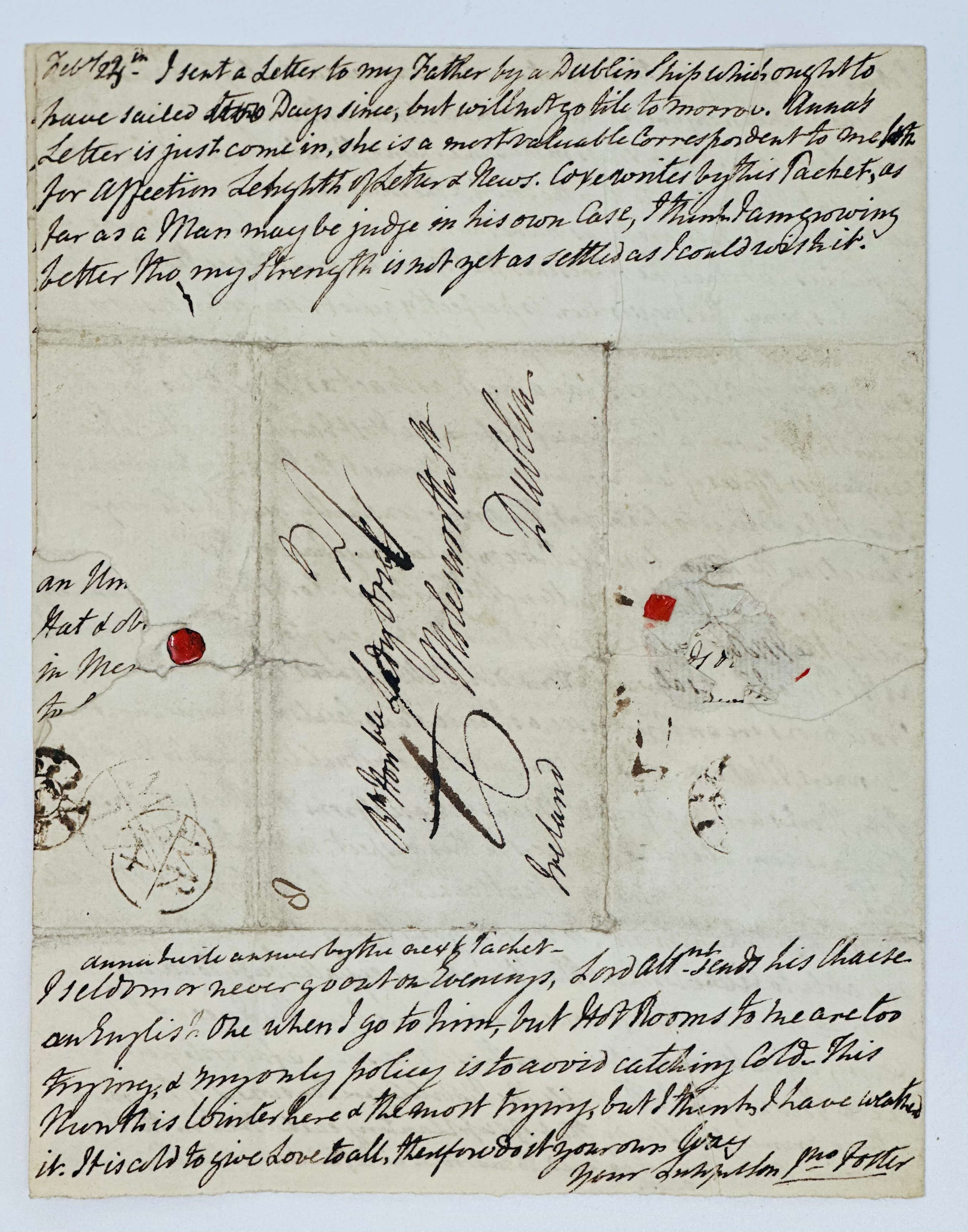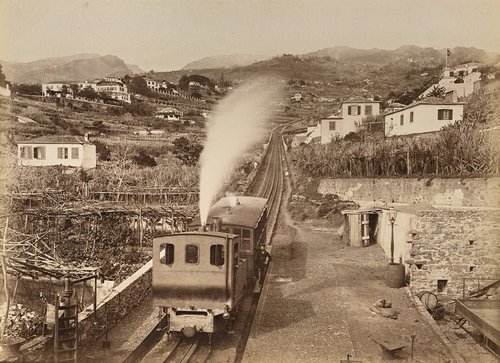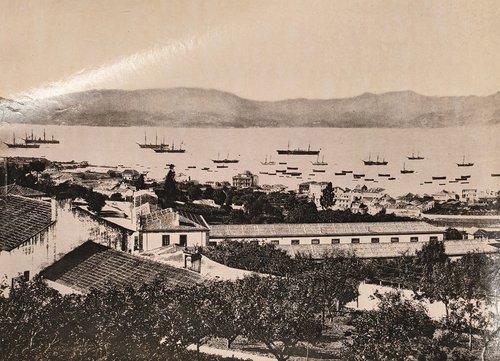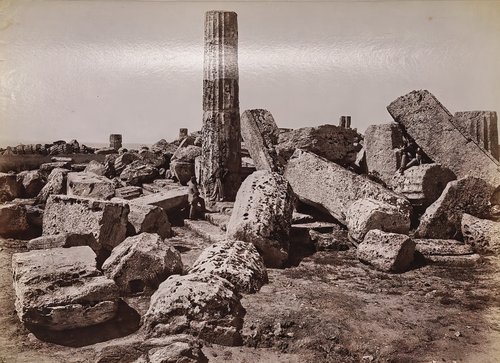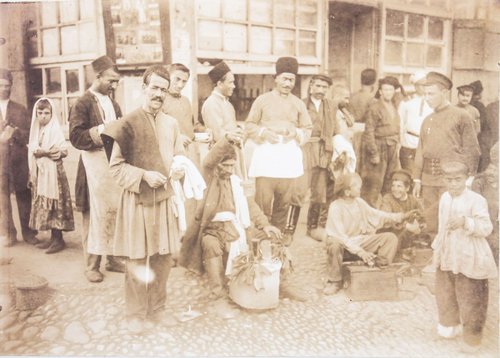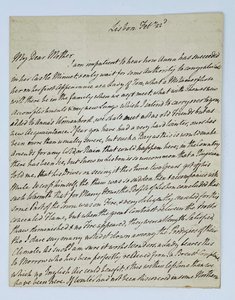
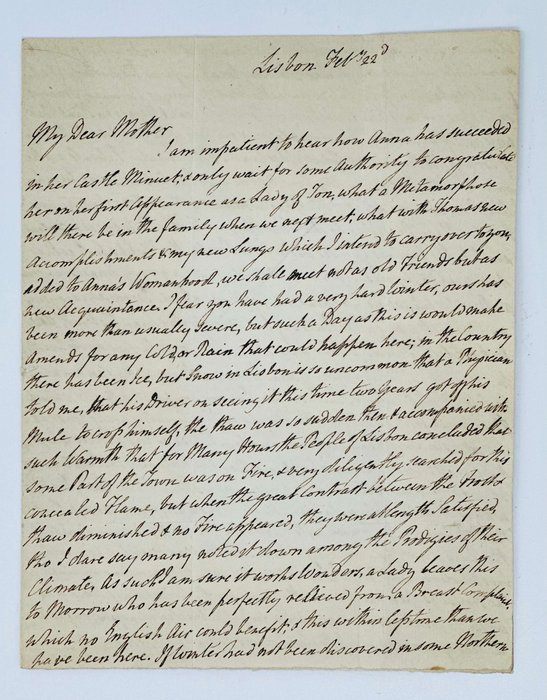
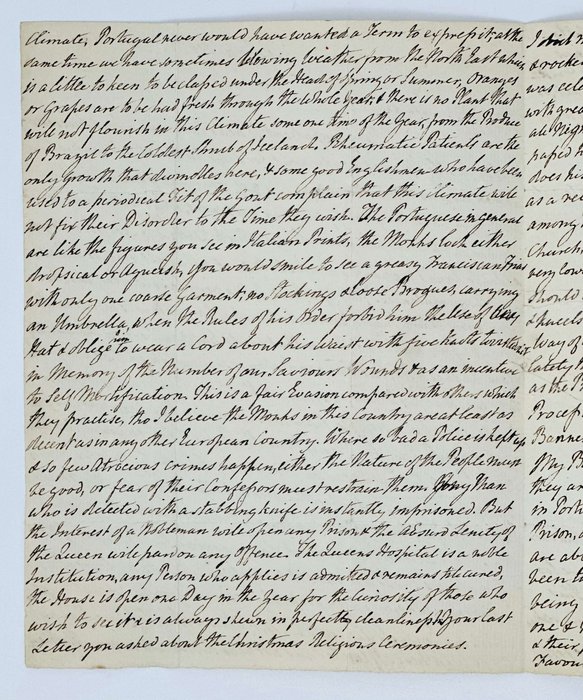
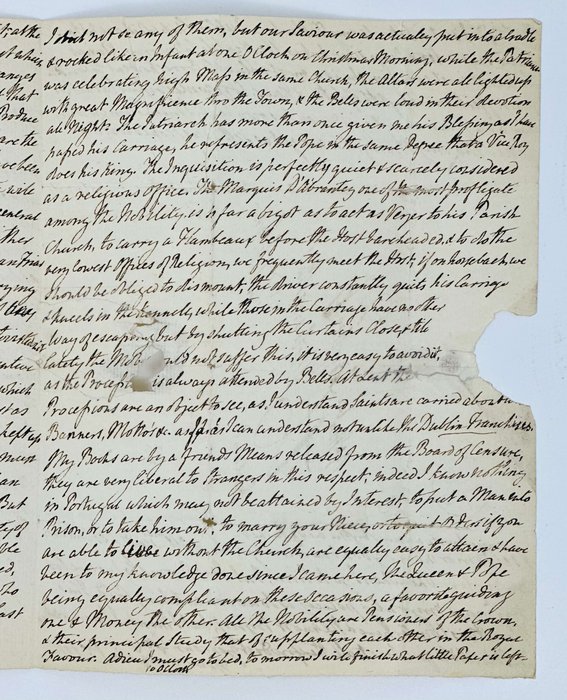
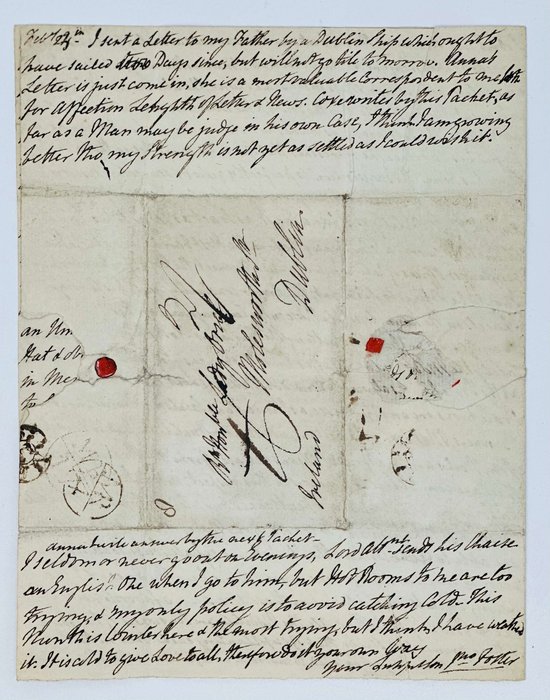
#MB42
Ca. 1791
Octavo (ca. 22x17 cm). 3 ½ pp. Brown ink on watermarked laid paper. Addressed, with postal stamps and remnants of the original seal on the fourth page. Fold marks, tears and holes on the last page after opening, touching a few letters of text but not affecting sense; the tears repaired. Overall a very good legible letter.
An informative letter full of interesting observations, by a member of one of the aristocratic Irish families, who travelled to Portugal either during a Grand Tour or for health reasons (the letter contains notes on his improving, but not yet good condition). Foster starts the letter expressing his impatience to know “how Anna [his younger sister, Anne Dorothea, ca. 1774-1865] has succeeded in her Castle Minuet & only wait for some Authority to congratulate her on her first Appearance as a Lady of Ton…”
The letter contains his observations on the Portuguese weather, people, religious customs and celebrations, etc.: “Snow in Lisbon is so uncommon that a Phisician [sic!] told me, that his Driver on seeing it this time two years got off his Mule to cross himself, the thaw was so sudden then & accompanied with such Warmth that for Many Hours the People of Lisbon concluded that some Part of the Town was on Fire, & very diligently searched for this concealed Flame <…> Oranges or grapes are to be had fresh through the whole year, & there is no Plant that will not flourish in this Climate some one time of the Year, from the Produce of Brazil, to the Coldest Shrub of Iceland <…> Rheumatic Patients are the only growth that dwindles here & some good Englishmen who have been used to a periodical fit of the gout complain that the climate will not fix their disorder to the time they wish. <…>
The Portuguese in general are like the figures you see in Italian Prints, the monks look either dropsical or agueish, you would smile to see a greasy Franciscan friar with only one coarse garment, no stockings & loose broques, carrying an umbrella, when the rules of his order forbid hi, the use of any hat... This is a fair evasion compared with other they practise <…> Where so bad a Police is kept up & so few Atrocious crimes happen, either the Nature of the People must be good, or fear of their Confessors must restrain them. Any man who is detected with a stabbing knife is instantly imprisoned. But the interest of a Nobleman will open any Prison, & the absurd lenity of the Queen will pardon any Offence.
<…> The Patriarch has more than once given me his Blessings as I have passed his Carriage, he represents the Pope in the same Degree that a Vice Roy does his King. The Inquisition is perfectly quiet & scarcely considered as a religious office <…> My Books are by a Friend’s Means released from the Board of Censure, they are very liberal to Strangers in this respect, indeed I know nothing in Portugal which may not be attained by Interest, to put a Man into Prison, or to take him out to marry your Niece <…> All the Nobility are Pensioners to the Crown, & their principal Study that of supplanting each other of the Royal Favour...”
“Thomas Henry Skeffington, 2nd Viscount Ferrard was an Irish peer and politician. He entered the Irish House of Commons for Dunleer in 1793, representing it until the Act of Union in 1801. Ferrard sat as Member of Parliament in the British House of Commons for Drogheda (1807-1812) and for County Louth (1821-1824). In 1811 he was appointed High Sheriff of Louth and in 1818, appointed High Sheriff of Antrim. He succeeded his mother as second Viscount Ferrard in 1821. However, as this was an Irish peerage it did not entitle him to a seat in the House of Lords. In 1828 he succeeded his father in the barony of Oriel, which was in the Peerage of the United Kingdom, and was able to take a seat in the upper chamber of Parliament” (Wikipedia).

